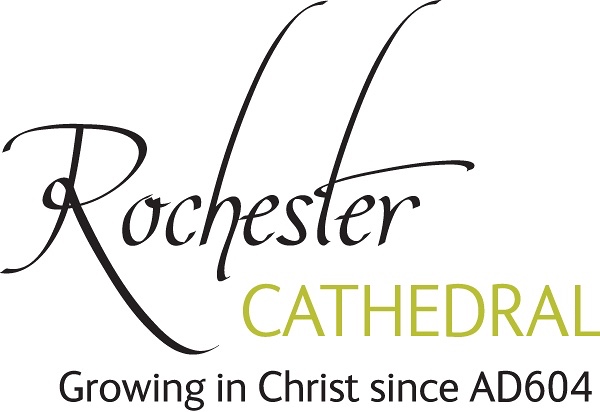Safeguarding Sunday – a sermon by Canon Precentor Matthew Rushton
/This week, the report by the Independent Inquiry into Child Sexual Abuse, detailing the safeguarding failings of the Church of England, was published. In response, our own Archdeacon of Tonbridge, the Venerable Julie Conalty, wrote in the Church Times this week that the report ‘sheds much-needed light on things that many in the Church have sought to keep hidden in darkness.’ ‘How could we have moved so slowly on all of this?’ she asks. ‘Why did so few people question or challenge?’
The spire of the Cathedral has been lit purple over the past few days as a sign of our own repentance, regret and remorse. There are prayers materials available in the cathedral today for anyone affected by these issues who wants to pray or speak to someone.
Symbolic actions are important. Prayer is always a good response. But… Time and time and time again, survivors and victims and those who represent them have said that they want action not words, restitution not platitudes.
As it happens, this Sunday has been dedicated to the theme of Safeguarding Sunday, which is timely considering the publication of the report.
But this week is not the time to speak about the progress that the Church of England nationally and we in Rochester Cathedral have made in terms of safeguarding practice and policy – though there has been much progress particularly in the past couple of years.
It is not the time, because we need to hear the frustration and pain of those who have been damaged by the inaction of the church for so long. It is not the time because we have not done enough yet - not nearly enough – to change the culture of a church that has prioritised the care and accommodation of perpetrators over the needs of those affected by their actions; a church whose theology and pastoral practice in relation to offenders and to the vulnerable became so skewed; a church whose leaders find it easy to say sorry, but seem to preach repentance without consequence and forgiveness without judgement.
We must stop making excuses
And we must rediscover what scripture can say to us about these things. As it happens, today’s Gospel is a good starting point.
Today’s Gospel, the parable of the wedding banquet (Matthew 22.1-14), is not a ‘popular’ parable – on some level, we all want to believe in a God who is unboundedly inclusive, that God accepts us as we are, forgives us no matter what. And that is true, but it is not the whole truth.
The puzzling episode at the end where it seems that a poor wedding guest is singled out for not wearing the right costume, can appear unfair – he’s not harming anyone, he wants to be there, who are we to judge, isn’t it just pointless rules and regulations to expect him wear particular clothing? But there are consequences and duties, even, on the path of discipleship and if we are not prepared to do those things, to be ‘clothed in Christ’, to ‘put on Christ’ (in the words of the baptism liturgy) do we really want to follow the Way of Christ at all?
Think of it this way. In the cathedral we have requirements for those who want to be involved in an official role, staff or volunteer, ongoing safeguarding training being a good example. We also know that there are approaches and behaviours that help to establish a safe environment, and those that do not. It is not just pointless rules and regulations. We are asked to embody, wear, inhabit, those duties and those approaches, like the wedding robe, because not doing so can have disastrous consequences.
This weeks’ report is by no means the first time these issues have been exposed. And yet the church has not responded as it should. For decades there have been high profile cases nationally and, yes, cases here in Rochester. There have been damning reports before. But church leaders and communities have not listened, or merely said the right things, or acknowledged there might be a problem but that it didn’t apply to them, or vilified those who raised concerns, or ignored the pleas of those who wanted to be listened to. In the parable, the unresponsive prospective wedding guests ignore the invitation, or make light of it, or attack the messenger. Eventually, the invitation to join in is taken away from them and the king takes matters into his own hands. I find this a compelling scriptural argument for having more independent management and oversight of safeguarding in the church.
Given our first reading – in which St Paul exhorts us to ‘Rejoice!’ – it saddens me to have to preach this sermon today – but we all have to hear this. Whatever necessary reforms and structures come out of the report, safeguarding is everyone’s responsibility. Every Sunday is Safeguarding Sunday. We will return to these issues time and time again, long after the spire has turned a different colour.
But for now, this week, perhaps the only appropriate response is symbol and silence and I am going to invite you to a minute of silence now. Into that silence:
We can pray for victims and survivors of abuse, for those who hold positions of responsibility in safeguarding in the church, for all those seeking to change their behaviours or their attitudes.
We can pray in repentance for the failings of the church or our own selves, and in commitment to work for safer communities.
We may wish to hold before God our own experiences of abuse, acknowledged and unacknowledged, for strength and consolation.
If events this week or today have raised any issues for anyone here personally and you would like to speak with me or one of my colleagues, please do so in the knowledge that you will be heard.
So, let us pray in silence before the Lord…
[one minute’s silence]
From the Archdeacon of Tonbridge again:
‘Now is the time for us to open our eyes, to really see what is going on and what needs to be done – and to move heaven and earth to make the crucial changes.’
Amen.




